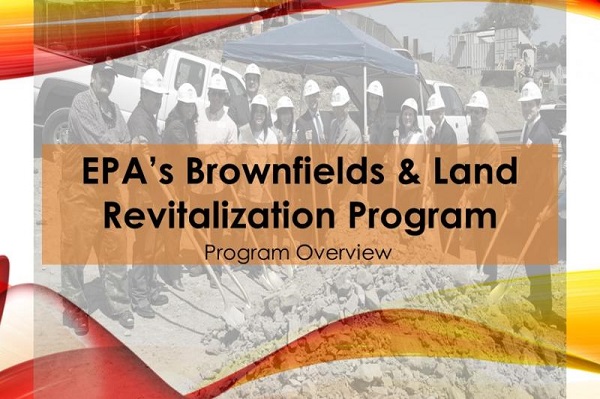New Bedford MA Selected for EPA Brownfields Job Training Grant

EPA Workforce Grants Transform Lives and Land Across the Country
NEW BEDFORD – The City of New Bedford, Massachusetts was one of 26 grant recipients selected by the U.S. Environmental Protection Agency (EPA) to share $5.1 million to operate environmental job training programs for local citizens.
Funded through EPA’s Environmental Workforce Development and Job Training (EWDJT) Program, the City of New Bedford will receive a $200,000 grant to help residents learn the skills needed to secure employment in the environmental field.
“EPA’s Job Training Program has helped to transform communities that need it the most. By investing in a local workforce to conduct environmental cleanup activities, we can help revitalize traditionally low-income neighborhoods,” said EPA Administrator Andrew Wheeler. “Seventy five percent of those trained under our program have gone on to find full time jobs with good wages. I am proud to announce that EPA is building on these successes by providing additional grants to help lift communities out of poverty, employ returning veterans, and build a skilled environmental workforce for the future.”
“This EPA Brownfields Job Training grant is one more important EPA investment in New Bedford’s future, with an improved economy and a cleaner, healthier environment for all citizens,” said EPA New England Regional Administrator Dennis Deziel. “The professional training provided with this grant will help dozens of trainees to learn high-demand professional skills. EPA’s job training grants help prepare people for well-paying jobs that reduce environmental contamination and provide more sustainable futures for the communities most affected by solid and hazardous waste contamination.”
EPA’s Environmental Workforce Development and Job Training program helps put people to work by building a skilled workforce across the country. The program awards competitive grants to cities, nonprofit organizations and other eligible entities to recruit, train and place unemployed and underemployed individuals. Individuals completing the training have often overcome a variety of barriers to employment. Many are from low-income neighborhoods. The training programs also serve dislocated workers who have lost their jobs as a result of manufacturing plant closures, minorities, tribal members, transitioning veterans, ex-offenders and other individuals who may have faced barriers to employment.
“We are very pleased that the EPA’s Brownfields Job Training grant invest in focused job training for residents of Greater New Bedford,” said New Bedford Mayor Jon Mitchell. “I’m grateful for the support of Regional Administrator Deziel for his support, and to our partners in this application: MassHire Greater New Bedford Workforce Board, Bristol Community College, Positive Action Against Chemical Addiction (PAACA); and the Old Bedford Village Development Corporation for its support of the application.”
Since 1998, when the EWDJT grant program started, more than 288 grants have been awarded. Over 18,000 individuals have completed training, and of those, more than 13,600 individuals have been placed in full-time employment earning an average starting wage of over $14 an hour. Rather than filling local jobs with contractors from distant cities, EPA created its environmental job training program to offer residents of communities historically affected by environmental pollution, economic disinvestment, and brownfields an opportunity to gain the skills and certifications needed to secure local environmental work in their communities.
All 26 programs selected by EPA for 2019 Environmental Workforce Development and Job Training grants serve communities with census tracts designated as federal Opportunity Zones – an economically-distressed community where new investments, under certain conditions, may be eligible for preferential tax treatment.
A brownfield is a property for which the expansion, redevelopment, or reuse may be complicated by the presence or potential presence of a hazardous substance, pollutant, or contaminant. There are an estimated 450,000 abandoned and contaminated waste sites in America. When brownfields are addressed, nearby property values within a one-mile radius can increase 5 – 15.2 percent according to an independent study.
More information:
– EWDJT grantees, including past EWDJT grantees, please visit: https://cfpub.epa.gov/bf_factsheets/
– EPA’s EWDJT program, please visit: https://www.epa.gov/brownfields/types-brownfields-grant-funding
– EPA’s work on brownfields in New England: https://www.epa.gov/brownfields/brownfields-and-land-revitalization-connecticut-maine-massachusetts-new-hampshire-rhode
